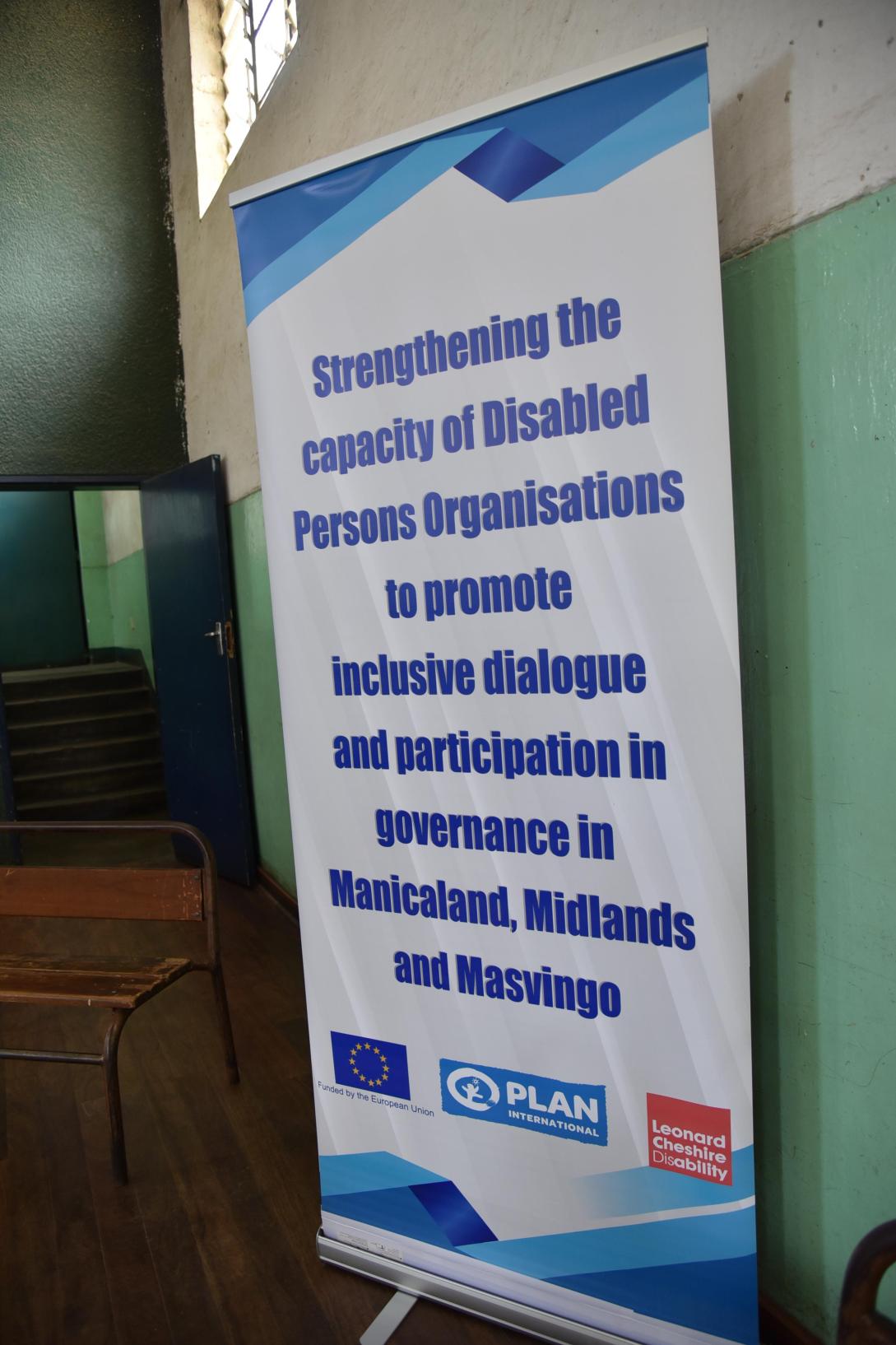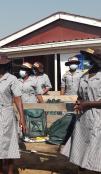Strengthening the capacity of Disabled Persons’ Organisations (DPOs) to promote inclusive dialogue and participation in governance

The project is supporting 7 organisations for people with disabilities in Midlands, Masvingo and Manicaland to develop stronger internal governance and organisational support functions and ensure that they are credible and authentic voices of people with disabilities in Zimbabwe. This includes working innovatively to support capacity in implementing preparedness and response for humanitarian actions. The organisations will thus be able to engage with the communities, duty bearers, policy-makers and other Civil Society Organisations in meaningful policy dialogue.
The overall objective of the project is to improve Disabled Persons Organisations’ (DPOs) participation in governance and policy making through strengthened grassroots structures of youth and women with disabilities in the Manicaland, Midlands and Masvingo provinces through:
- Strengthening internal governance, transparency and organisational support functions to meaningfully contribute to policy dialogue at all levels promoting inclusion of the rights of persons with disabilities, particularly women and youth.
- Increased awareness on rights and governance amongst youth and women with disabilities
- Partnerships between DPOs, CSO networks and policy makers to put disability inclusion issues in the development and implementation of policies.
- Enhancing DPO’s capacity to anticipate and respond to humanitarian crises (Disability inclusive Disaster Risk Reduction)
Achievements to date,
- 7 Disabled Persons Organisations have been equipped with skills in Strategic Planning, Resource Mobilization, Project and Financial Management.
- Disability Committees have been established in the implementation districts.
- 1 Position paper and 1 policy brief has been produced on disability
- Training has been conducted in relevant thematic areas such as advocacy and DIDRR,
- DIDRR strategies are in place in all the 38-targeted wards.
- Grassroots structures of women and youth have been created in the targeted provinces and these structures meet on a quarterly basis for cross learning and exchange of experiences of partaking in Disabled Persons Organisations governance matters, among others.
- Support groups have been established with a focus on economic empowerment. As such, women affiliated to the National Council of Disabled Persons in Zimbabwe (NCDPZ) received a grant from Empowerment Bank to support their detergent-making project – a step that is strategic considering that one cross-learning process revealed that combining income-generating activities and advocacy increases effectiveness in Disabled Persons Organisations-led advocacy efforts.
- The NCDPZ also lobbied for realisation of the requirement that 15% of residential stands be allocated to People with Disabilities as enshrined in the National Disability Policy. To date, 2 Women with Disabilities received residential stands in Zvishavane.
- 7 Disabled Persons Organisations became members of the Rural District Development Committee (RDDC) meetings representing the interests of People with Disabilities in their districts of operation.



